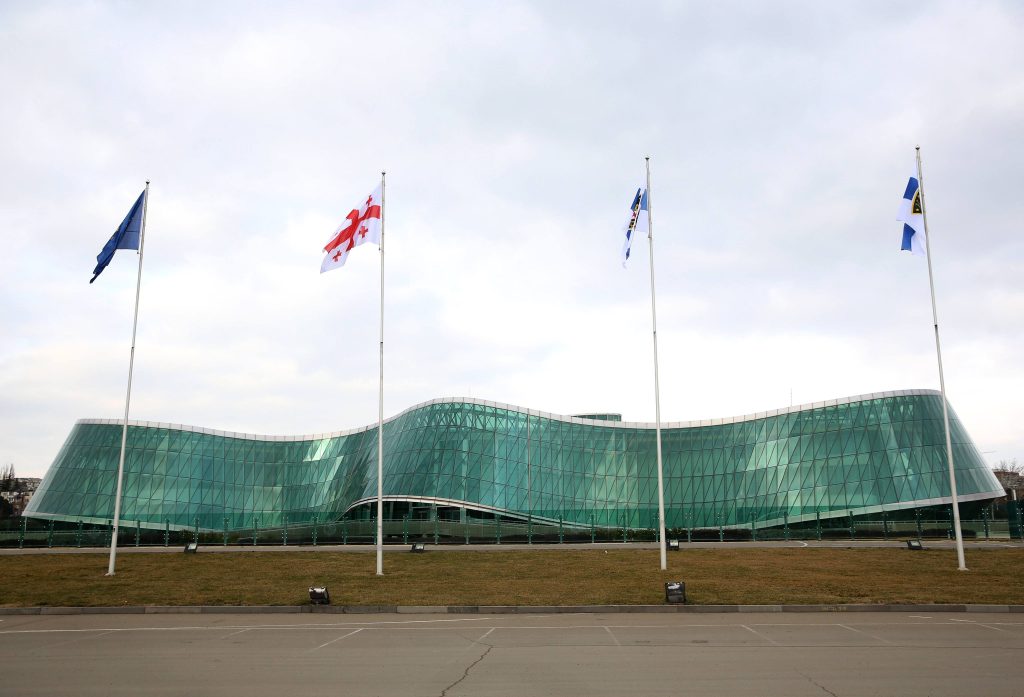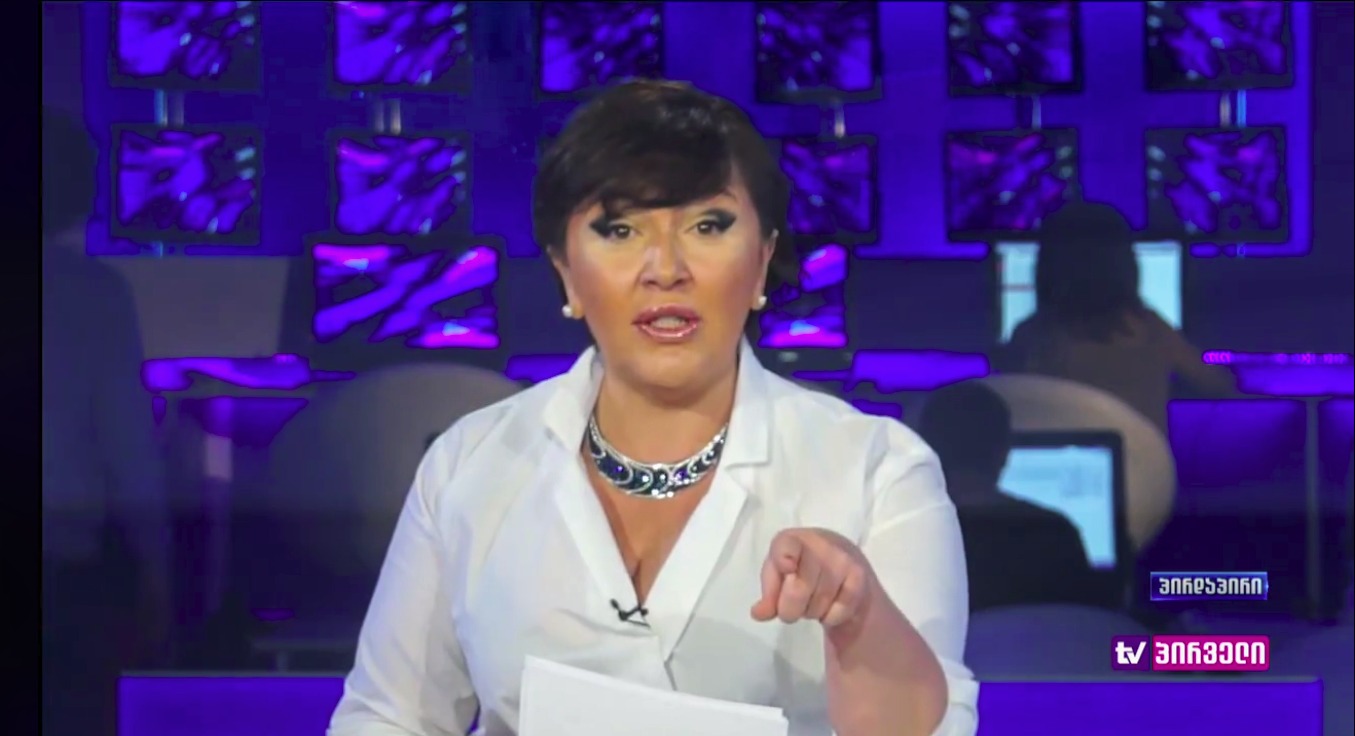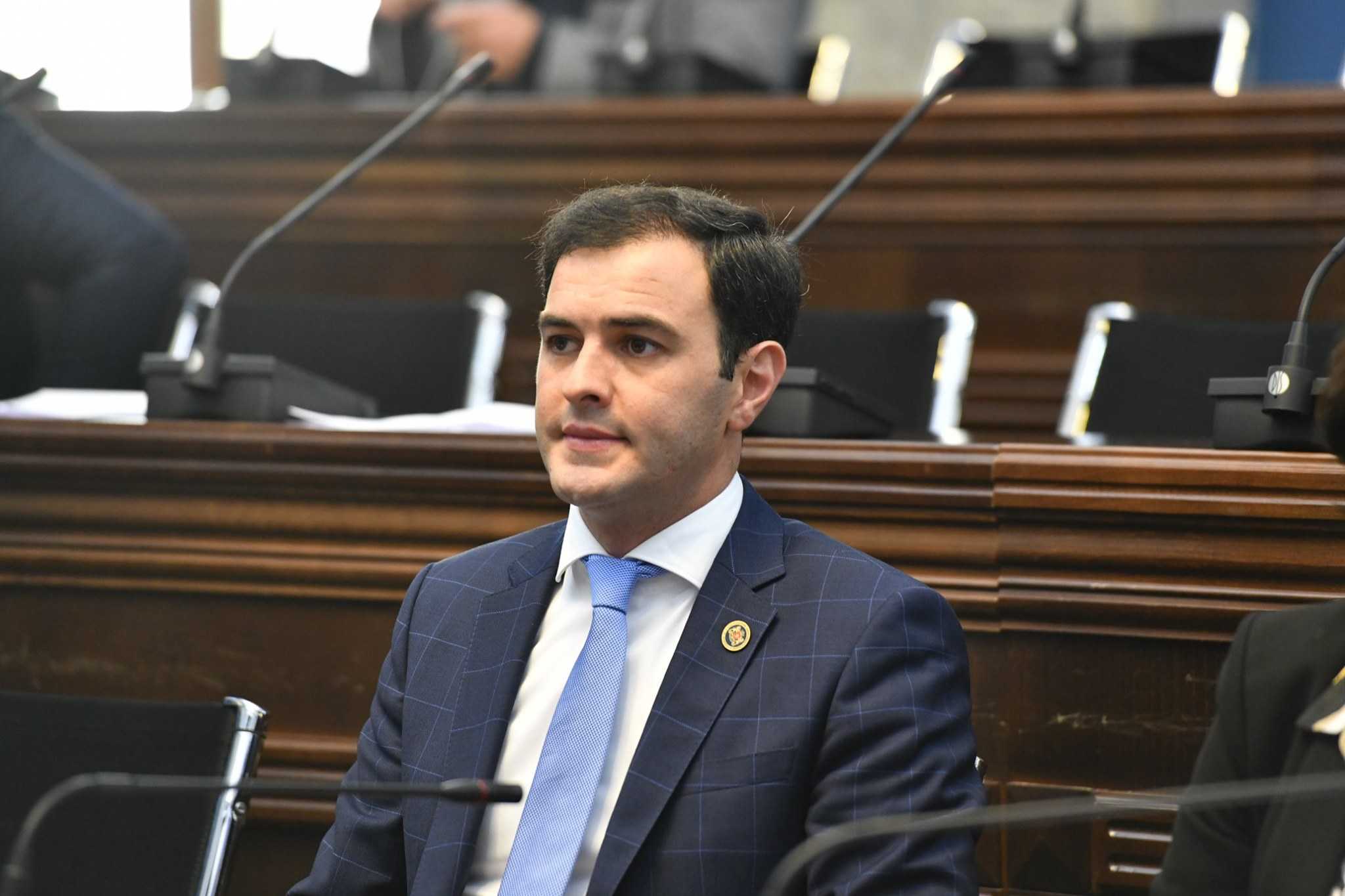

Georgia’s Interior Ministry has named a man they suspect of uploading and disseminating a sex tape of an unnamed person in January.
On 9 February, the ministry said that with help from Facebook, they had ‘tentatively’ identified Dimitri Andreev, who is serving prison time in Armenia for murdering a taxi driver.
According to officials, Andreev, who left Georgia for Armenia in late 2016, used an alias on Facebook to commit the crime.
The Ministry said that with the help of Armenian authorities, they had been able to retrieve a Samsung mobile phone from his prison cell.
They did not specify whether or not they considered Andreev the original leaker of the undisclosed sex tapes.
Georgian authorities are currently investigating the ‘obtaining, storage, use and dissemination of information of the private life’, of Georgian Dream MP Eka Beselia. The crime is punishable by up to seven years in prison.
Discovering the suspect’s identity
Police opened a probe into the dissemination of sex tapes online on 28 January, the day after the leak was reported.
On 1–2 February, authorities arrested 17 people for sharing the private footage. Tbilisi City Court released 14 on bail and remanded three in pre-trial detention.
Several of those charged have maintained they received the leaked video via a link in their Facebook messenger inbox from an unknown account, and never shared it with anyone. Authorities did not challenge that this was how they received the video but charged several with actively sharing the video in Facebook groups.
The opposition United National Movement (UNM) party, two members of which were among the detained, accused the Georgian State Security Service of intentionally sending the video to people in order to set them up.
On 31 January, Georgian social media users reported that the video first became publicly available on a Facebook profile called ‘Buba Lomtatidze’, an account that Georgian police allege Andreev used.
Opposition-leaning TV channel Rustavi 2 claimed on 9 February that ‘Buba Lomtatidze’ cited a conflict with former Prime Minister and current Georgian Dream chair Bidzina Ivanishvili’s ‘criminal’ cousin, Emzar Ivanishvili, as the reason for sharing the footage.
Rustavi 2 claimed Georgian authorities were forced to make the case against Andreev public on 9 February after they learned that Rustavi 2’s ‘Saturday Courier’ programme was about to report Andreev’s involvement.
Saturday Courier referred to Andreev as ‘one of the uploaders’, and broadcast an interview with him which they said was recorded several weeks ago from prison.
In the interview, Andreev accused Emzar Ivanishvili of framing him for murder, after he fled to Armenia following a conflict with his family in the west Georgian seaside resort of Ureki.
Emzar is a nephew of Georgian Dream leader Bidzina Ivanishvili.
On Monday, Andreev’s brother, Roma, described him as an ‘opportunist’ and speculated that someone had probably offered him early release from prison in exchange for making ‘baseless’ allegations against Ivanishvili.
Growing cracks in Georgian Dream
The reported leak of Beselia’s sex tape on 27 January followed growing cracks in the Georgian Dream ranks over Supreme Court nominations.
The conflict became public in late December, when Beselia, who chaired Parliament’s legal affairs committee, publicly criticised her party’s executive secretary, Parliamentary Speaker Irakli Kobakhidze, for ‘rushing’ confirmations of justice nominations.
Beselia resigned her post in protest, claiming the list of candidates was full of judges responsible for ‘unjust rulings’ during former president Mikheil Saakashvili’s rule.
Since then, the party has held several meetings both with and without Beselia, but have so far not succeeded in reaching a compromise.
[Read more on Supreme Justice nominations controversy on OC Media: MPs threaten to quit Georgian Dream over supreme justice nominees]
On 28 January, following reports of the leaked tape, Beselia demanded a prompt investigation and insisted that this ‘apparent retribution’ against her would not stop her from criticising justice nominees.
Previous leaked sex tapes
Bidzina Ivanishvili came under fire from the media, opposition, and rights groups last year after he claimed in a televised interview on 23 October that he did not remember previous sex tape leaks.
On 11 and 14 March 2016, several public figures, including politicians and journalists critical of Georgian Dream, were targeted in a series of sex tape leaks and threats to expect more unless they resigned from their posts.
Despite the high-profile nature of the victims, several media outlets, including OC Media, abstained from identifying them out concern for their privacy.
Popular TV journalist Inga Grigolia was among the few who publicly called out her blackmailers, insisting on-air in March 2016 that she would not be intimidated by threats.
‘I am Inga Grigolia, a woman, a daughter, a mother, and a friend. I have a great lover, I have sex, and intend to lead my life this way’, Grigolia stated during her live broadcast on 14 March.

In 2015, several local rights groups criticised Georgian Dream for publicly showing ‘footage of torture and sexual violence’ secretly recorded in prisons in Zugdidi and Tbilisi as part of their campaign against the formerly ruling UNM party.
On 29 January, ‘This Concerns You’, a campaign against illegal wiretapping that unites the Open Society Georgia Foundation, Transparency International — Georgia, the Georgian Young Lawyers Association, EMC, and other rights groups, called on the Georgian government to ‘exert political will and ultimately combat blackmail with secret recordings’.
‘A systemic weapon against women’
On 29 January, Georgian public defender Nino Lomjaria said that the leaks in Georgia were used as a ‘systemic weapon against women’. She urged the authorities to take into account the ‘discriminatory motive’ behind such crimes as an aggravating circumstance when prosecuting and to develop ‘complex measures’ to promptly react to leaks and raise public awareness of the issue.
Speaking to OC Media, Baia Pataraia, head of women’s rights group Sapari, said the leaks predominantly targeted publicly active women, including politicians and journalists, as well as queer men.
According to her, the perpetrators expect women targeted by such leaks to lose public trust and be scorned by the public for having a sex life, while tapes exposing homosexual relationships were used for blackmailing purposes.
Pataraia said that prosecuting those who reshare leaked footage of people’s private lives was important, but a failure to identify the recorders and leakers themselves could be attributed to either the incompetence of the law enforcement agencies or to a political motive. She said she leaned rather to the latter.
‘The decision to leak a recording is political. It is a political crime, used to obstruct individuals in their public and political life, usually committed by the Georgian State Security Service run by Bidzina Ivanishvili’s [former] security detail, and we can’t expect them to prosecute themselves’, Pataraia said.
Pataraia said that the leaks would lose power and stop working if there was a consensus in society that ‘a consensual sexual relationship has nothing to do with a person’s integrity and professionalism’.







